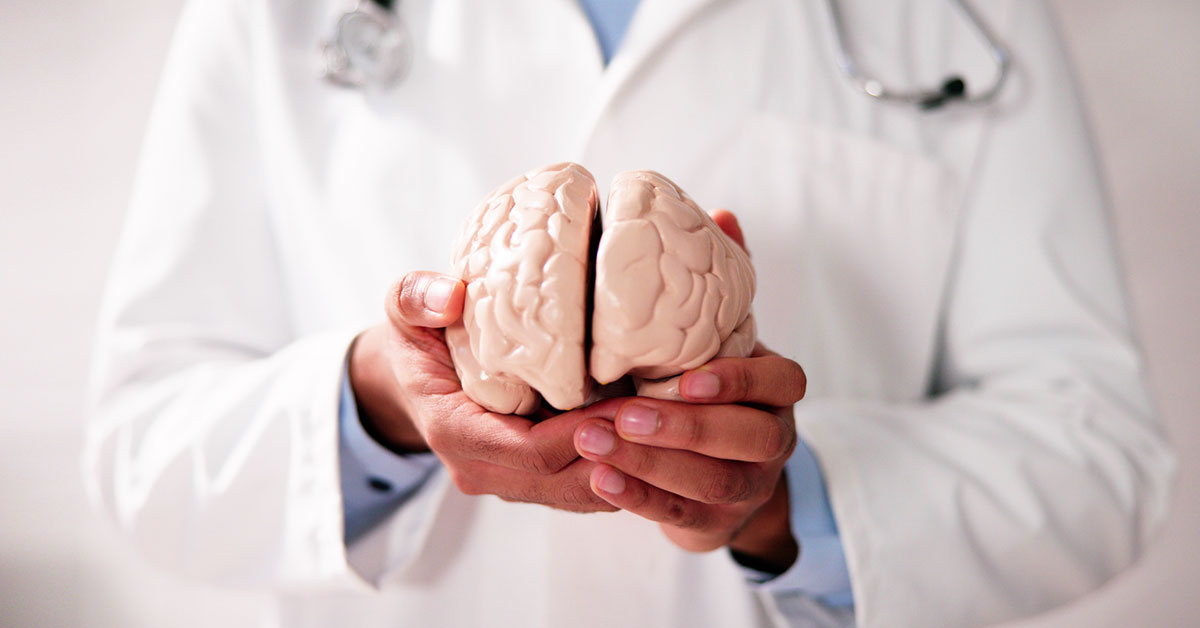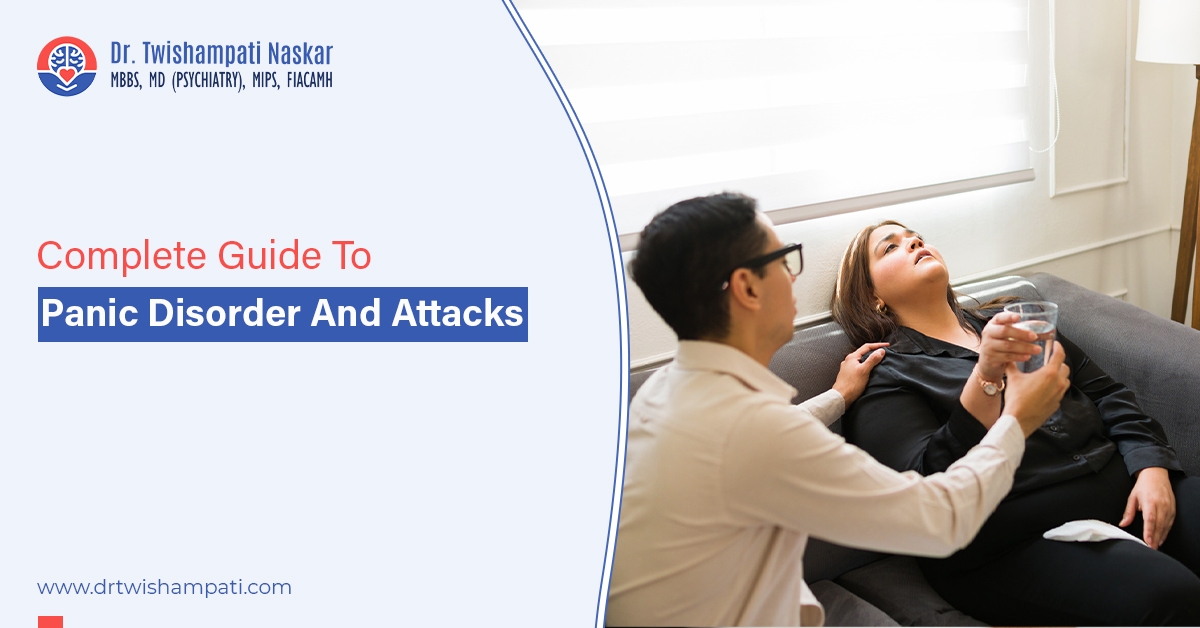Neuropsychiatry is a specialized branch of medicine that diagnoses and treats various mental health conditions associated with neurological disorders. To understand the complex relationship between your behaviour and brain, you can contact Dr. Twishampati Naskar one of the best neuro-psychiatrist in Siliguri who can also manage neuropsychiatric disorders. Any disorders affecting your thought process, behaviour, perception, cognition, and memory can be evaluated in this field.
The cognitive impairment and personality changes related to neuropsychiatric disorders can impact both adults and children. The most common causes of these disorders among children include genetic predisposition, traumatic head injury, side effects of the medications, infections, and environmental factors. Additionally, these conditions can also lead to various distressing symptoms including memory issues, irritability, and sadness.
Here Are Some Of The Common Disorders Treated By A Neuropsychiatrist
1. Uncontrolled Anger
Anger is a common problem that we all face but if the anger becomes uncontrollable then it is considered a neuropsychiatric issue. Uncontrolled anger is extremely bad for your mental and physical health which can be caused due to various underlying conditions such as depression, alcohol misuse, obsessive-compulsive disorder, grief, and bipolar disorder.

Some of the common symptoms of uncontrolled anger include muscle tension, increased blood pressure, stress, irritability, and frustration. There are also different ways of manifesting anger since it can be inward, outward, or passive.
Treatments: A neuropsychiatrist can help you learn various techniques of anger issues management. The common methods include behavioural therapy, relaxation techniques, anger management exercises, and medications for underlying mental health issues.
2. Seizures
Another common type of neuropsychiatric disorder is seizures which mainly happen due to sudden electrical activity in the brain. This uncontrolled activity can cause sudden changes in feelings, behaviour, and movements where you may also experience certain levels of unconsciousness.

If you experience more than 2 seizures within 2 days then the doctor will consider it as epilepsy. You may also suffer from a sudden seizure due to a head injury or stroke and in most cases, it only lasts for a few seconds but if it stays for more than 5 minutes then it is considered a medical emergency. Staring spells, confusion, and jerking movements are common warning signs of a seizure.
Treatments: Medications, surgery, and electrical stimulation such as deep brain, vagus nerve, and responsive neurostimulation can control seizures.
3. Depression
Depression is one of the most common mood disorders that can lead to various disturbing symptoms such as sleep disturbances, sadness, trouble thinking, loss of interest, sudden anger outbursts, and suicidal thoughts. This is such a neuropsychiatric disorder that can severely impact adults, children, teens, and older adults.

In most cases, you may develop depression due to changes in brain chemistry, biological differences, and hormonal imbalance. Experiencing certain traumatic events or alcohol addiction can also contribute to the development of depressive episodes.
Treatments: To undergo a detailed psychiatric evaluation, you can contact one of the best neuro-psychiatry doctors near you. Based on your condition, the doctor may prescribe antidepressants, psychotherapy, or brain stimulation therapies.
4. Migraine Headaches
Migraine headache is a health complication which is caused due to improper functioning or hypersensitivity of the nervous system. The trigeminal nerve present in the facial skin, teeth, tendons, and muscles is responsible for migraine attacks in most of the cases. As a result of this abnormal brain activity, you may experience a pulsing or throbbing sensation in the head.

Some of the other warning signs that indicate a migraine headache are mood changes, vision loss, difficulty speaking, light sensitivity, nausea, throbbing pain, and confusion. There are also certain factors that may trigger a migraine episode such as stress, physical strain, and sleeping disturbances.
Treatments: Pain-relieving medications and drugs for seizures, depression, and blood pressure can be used to manage migraine headaches.
5. Attention-Deficit/Hyperactivity Disorder (ADHD)
ADHD is a common neurodevelopmental disorder which is mainly developed during childhood. Children suffering from this disorder experience major issues in controlling their behaviour and mood. They may also face difficulty in concentrating, follow directions, and pay attention.

Some of the other symptoms of ADHD that one can suffer from are distractions, memory problems, decreased focus, and making careless mistakes. The differences in brain activity and structure are considered the key reason behind this disorder which can also be associated with low birth weight, premature delivery, and excessive substance use during pregnancy.
Treatments: Medications and behavioural therapy are often recommended by a neuro-psychiatrist to manage the improper behaviour and other symptoms of ADHD.
6. Anxiety
One of the most common types of disorders that can be effectively treated by a neuropsychiatrist is anxiety disorder. Some of the common types of anxiety disorders that may affect your life quality are panic disorder, agoraphobia, generalized anxiety disorder, phobias, and social anxiety.

These mental health complications can contribute to various stressful symptoms which include trouble sleeping, hyperventilation, isolation, nervousness, and difficulty controlling worries. There can be various personality changes, medical conditions, stress, childhood trauma, and family history that can increase the likelihood of developing anxiety disorders.
Treatments: Medications and psychotherapy such as Cognitive behavioural therapy (CBT) can help you manage the triggers behind anxiety disorders.
7. Palsies
Peripheral nerve palsy is a nerve disorder that can be caused due to genetic disorder, trauma, nerve compression, or brain injury. The common types of this complication are ulnar, peroneal, and radial nerve palsies.

Some of the signs that may help you to identify a palsy are paralysis, numbness, and tingling sensation. The location where you’re experiencing the numbness depends upon the area of the compressed nerves. If your carpal tunnel has been affected then it can cause numbness in your wrists or index finger.
Treatments: The doctor may recommend splinting or corticosteroid injections to treat palsies. In some cases of peripheral nerve paralysis, surgery can also be performed.
8. Cognitive Deficit Disorders
Another type of mental health complication that may affect your overall life quality is cognitive deficit disorders. Common types of neurocognitive disorders include amnesia, motor skill disorders, dementia, substance-induced cognitive impairment, and developmental disorders.

If you experience any type of cognitive disorder then you may suffer from various physical and emotional symptoms such as emotional outbursts, impaired judgment, confusion, loss of memory, poor motor coordination, and glazed appearance.
Treatments: To improve the symptoms and delay the progression of the disorders, the doctor may recommend various medications. Early detection of these disorders is the key to a successful recovery.
If you experience any of these health issues then you must book an appointment with a renowned neuro-psychiatrist in Siliguri. The doctor will adopt an individualized approach to treatment to offer you effective counselling and therapy sessions to control the severity of the neuropsychiatric disorders.
Comments (0)






